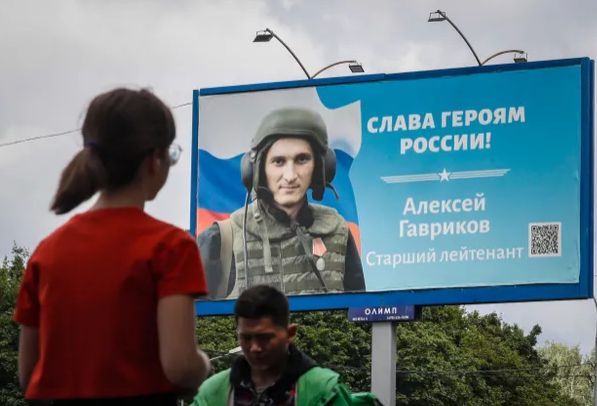By Eric Vandenbroeck and co-workers
President Vladimir Putin reported a series of positive economic
developments at a regular meeting with his government. However, according
to Insider, the
statistics have been manipulated.
The Putin administration thus is bracing itself for an anticipated rise
in popular discontent in Russia as prices continue to go up and factories shut
down. On their payroll, Kremlin officials and political strategists believe
that Vladimir Putin’s supporters are losing interest in the war against Ukraine
— which means they’re beginning to pay attention to other issues. And with the
start of the school year fast approaching, the pressures of getting the kids
ready for class could be the final straw.

Where Autumn is traditionally associated with an uptick in
widespread discontent. Social anxieties receded during the summer as people go
off on holiday or to their dachas. As autumn rolls around, Russians begin
worrying about work difficulties and notice rising prices — the sense of
optimism associated with the summer holidays disappears. “Summer is a time for
a kind of pause: it’s warm, it’s bright, working days go by in the background. In
the fall, everyone understands that winter is coming; expect nothing good,” one
source quipped.
Getting ready for the start of the school year on September 1 is
another potential trigger for social discontent. People will inevitably compare
how much they spent on back-to-school in 2022 — amid Russia’s full-blown war
against Ukraine — to their spending in previous years. And the scale of the
rise in prices will become all too clear.
Claims about some pro-Kremlin Russians losing interest in the war
against Ukraine are indirectly evidenced by a recent survey conducted by the
privately held research company Romir. The survey
showed that since February, the average daily TV-viewing reach of the Russian
state-controlled channels Perviy Kanal
and Rossiya-1 has dropped by eight percent. Most of the airtime on Russian
television is taken up by political talk shows, where presenters and guests
discuss Ukraine and “hostile Western countries.”
Getting ready to throw
money around
The mass exodus of Western companies from Russia in response to the
February invasion has led to another problem that worries Kremlin officials —
manufacturers in the regions are shutting down. As a result, unemployment
issues are expected in the Kaluga region (where large foreign automakers have
their factories), the Leningrad region (where many large enterprises have
Western owners or are dependent on supplies from the West), and other
industrial areas.
The way the Putin administration’s domestic policy bloc sees it;
there’s only one way to stave off rising discontent: handing out cash. Meduza’s sources recalled that during the coronavirus
pandemic, the Russian government dealt with the ensuing economic fallout by
offering financial support to the population on multiple occasions. As a rule, these
payments were made available to families with
children and were distributed ahead of elections.
In the fall, they will try to shower the dissatisfied with money. It might be
relatively small amounts, but people will be glad to receive them. To develop
an ideological justification for why Putin embarked upon a full-blown war
against Ukraine and why Russians should put up with economic hardships due to
Western sanctions. However, these ideas were developed with the expectation of
ending the war through peace talks.
Now, Putin is committed to a long war, and the Kremlin is no longer
trying to give this strategy an ideological framework. The authorities believe
they’ll be able to weather the next wave of popular discontent by quelling it
with money.
For updates click hompage here